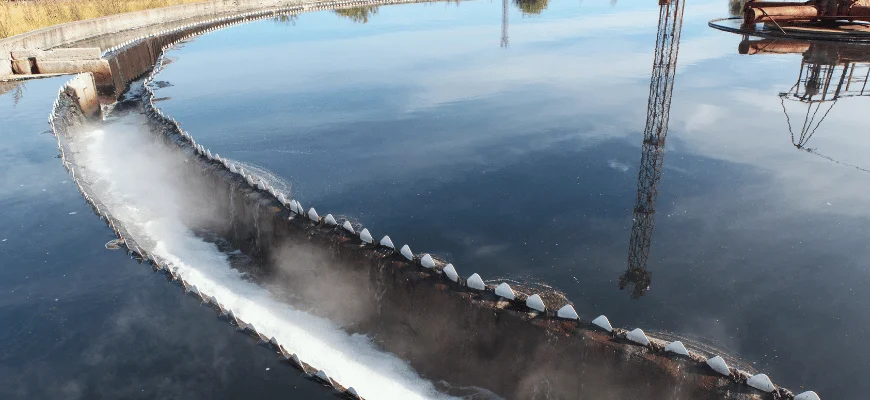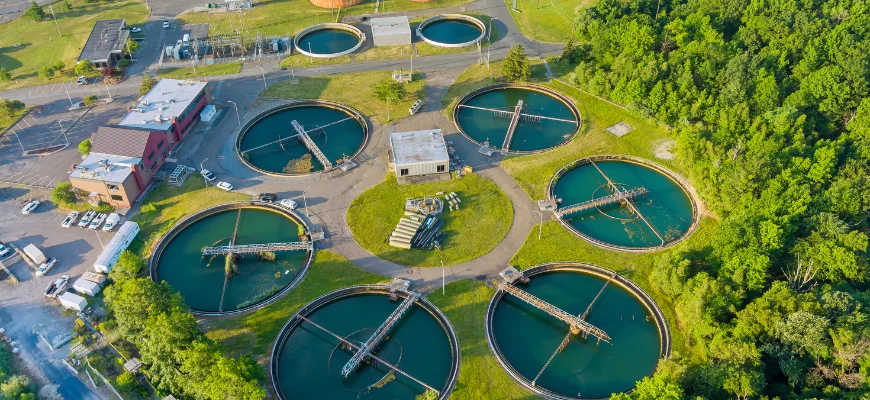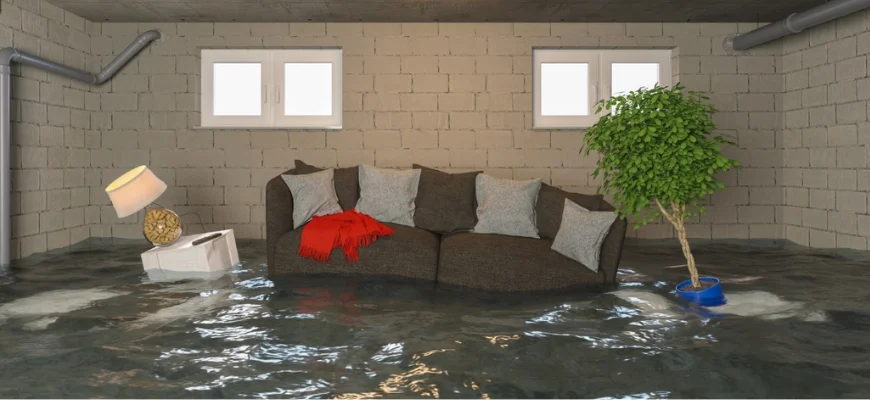The Swachh Bharat Abhiyan, is a nationwide initiative aimed at creating a cleaner and greener India by improving sanitation and reducing pollution.
A crucial part of this mission is effective wastewater management using industrial wastewater pumps, which handle diverse effluent types efficiently. With growing industries and cities, managing wastewater efficiently is essential to protect the environment and public health. Industrial wastewater pumps play a vital role in this process by handling wastewater from industries, municipalities, and rainwater systems, contributing significantly to a cleaner and healthier India.
Why Effective Wastewater Management Matters

As cities grow and industries expand, the amount of wastewater being generated is increasing at an alarming rate. Managing this wastewater effectively is essential to protect public health, safeguard the environment, and ensure sustainable development.
Key Reasons Why Wastewater Management is Important
- Protecting Public Health
- Untreated wastewater can spread diseases by contaminating drinking water and soil.
- Proper treatment ensures communities have access to safe and clean environments.
- Environmental Preservation
- Wastewater, if not managed, can pollute rivers, lakes, and oceans, harming aquatic life.
- Proper wastewater treatment helps maintain biodiversity and water quality.
- Supporting Sustainable Development
- Efficient wastewater management enables water recycling, reducing stress on natural resources.
- Helps industries and municipalities meet environmental regulations.
Key Areas of Concern
- Municipal Waste: Includes sewage and household waste that needs proper treatment to avoid urban contamination.
- Rainwater Runoff: Often carries pollutants from streets, posing risks to water bodies if not managed.
- Industrial Effluents: These can contain harmful chemicals that require specialized treatment before disposal.
By addressing these concerns, wastewater management not only resolves immediate issues but also ensures a cleaner and healthier future for everyone.
Efficient Solutions with Industrial Wastewater Pumps
Effective wastewater pumps, such as Non-Clog Submersible Sewage Pump and the Submersible Dewatering Pump, are essential tools for managing different types of wastewater efficiently. These pumps address various challenges in wastewater treatment, contributing to better sanitation, environmental protection, and sustainability. Below are the key applications of industrial wastewater pumps.
Municipal Wastewater Management

Submersible pumps for municipal corporations are essential for ensuring efficient sewage and wastewater management. These pumps are designed to operate submerged in wastewater, making them ideal for handling large volumes in urban sewage systems. They play a key role in preventing urban flooding and ensuring that wastewater is properly transported to treatment facilities.
- Efficient Transport: Industrial wastewater pumps ensure smooth movement of wastewater through sewage and drainage systems, preventing blockages.
- Flood Prevention: By managing wastewater effectively, pumps help avoid urban flooding.
- Environmental Protection: Reduces contamination of water bodies and surrounding areas.
Rainwater Management

Rainwater, if unmanaged, can lead to property damage and wasted resources. Wastewater pumps are vital in rainwater handling systems.
- Flood Mitigation: Pumps remove excess rainwater to prevent flooding during heavy downpours.
- Conservation: Facilitate rainwater collection for reuse in irrigation, industrial processes, or municipal systems.
Industrial Wastewater Applications
Industries across various sectors, including manufacturing and chemicals, generate significant volumes of wastewater that require specialized handling. Advanced wastewater pumps are designed to efficiently transport and treat industrial effluents, ensuring compliance with environmental regulations and promoting sustainable practices.
- Effluent Management: Pumps ensure industrial waste is collected, treated, and disposed of safely, reducing pollution.
- Regulatory Compliance: Helps industries meet environmental regulations by managing harmful substances effectively.
- Sustainability: Supports eco-friendly operations by enabling recycling and reuse of treated water.
By addressing these specific needs, wastewater pumps offer versatile and effective solutions, supporting industries, municipalities, and communities in managing wastewater responsibly.
Key Features of Our Advanced Wastewater Pumps
Modern wastewater pumps are designed to handle diverse and challenging conditions effectively. These advanced features ensure reliable performance while catering to the specific needs of industries and municipalities.
Durability that Withstands Challenging Conditions
- Built with corrosion-resistant materials like stainless steel to handle harsh environments.
- Capable of operating under extreme temperatures and pressures.
- Designed to resist wear and tear from abrasive particles in wastewater.
- Engineered for long service life, even in continuous operation.
- Equipped with advanced coatings for enhanced durability.
- Suitable for both indoor and outdoor installations, ensuring reliable performance in various conditions.
Efficiency that Maximizes Performance and Minimizes Costs
- Incorporates energy-efficient motors to minimize power consumption.
- Optimized hydraulic designs to maximize flow while reducing energy waste.
- Reduces carbon footprint by meeting modern energy efficiency standards.
- Smart features like variable speed drives for adjusting flow rates as needed.
- Minimizes energy loss during operation, lowering operational expenses.
- Efficient at handling large volumes of wastewater without compromising performance.
Customizability to Meet Specific Industry and Municipal Needs
- Available in a variety of sizes and capacities to suit different applications.
- Configurable with multiple pump materials based on the type of wastewater.
- Tailored options for specific industry needs, such as chemical-resistant pumps.
- Modular designs allow for the addition of features like remote monitoring.
- Compatibility with existing wastewater systems for seamless integration.
- Ability to adjust flow rates and pressure settings for diverse use cases.
Easy Maintenance for Continuous Operation and Reliability
- Equipped with self-cleaning impellers to reduce clogging.
- Modular designs simplify replacement of parts and components.
- Easy access to internal components for quick inspections and repairs.
- Maintenance-friendly designs reduce the need for specialized tools.
- Durable seals and bearings require minimal upkeep over time.
- Built-in diagnostics alert operators to potential issues before failure occurs.
These features make advanced wastewater pumps indispensable for efficient wastewater management, ensuring durability, adaptability, and cost-effectiveness for users.
Contribution to the Clean India Mission
Our Advanced wastewater pumps significantly contribute to the success of the Clean India Mission (Swachh Bharat Abhiyan) by addressing critical issues related to sanitation and water management. Their impact extends beyond technology, fostering environmental responsibility and community involvement.
- Enhancing Sanitation: Advanced wastewater pumps play a crucial role in ensuring efficient sewage and wastewater treatment, which is essential for maintaining proper sanitation. By utilizing industrial wastewater pumps, untreated wastewater is effectively managed and prevented from contaminating local water bodies, helping to preserve the environment and promote public health. These pumps are vital in safeguarding water quality and supporting cleaner, healthier communities.
- Reducing Pollution: These pumps are essential for managing both industrial effluents and municipal waste, significantly reducing pollution in urban and industrial areas. By supporting the proper disposal and treatment of wastewater, they help minimize the risk of soil and water contamination, contributing to a cleaner and safer environment.
- Supporting Effective Water Management: Wastewater pumps play a key role in efficient rainwater collection and management, allowing the water to be reused for non-potable purposes. They also aid in better flood control, minimizing water damage and promoting water conservation during the rainy season.
- Encouraging Collaboration for Sustainability: The use of advanced pumps fosters collaboration between industries, urban planners, and local communities, all working towards a cleaner and greener India. By adopting these pumps, businesses and municipalities can reduce their environmental footprints, promoting a culture of sustainability.
These contributions are in line with the goals of the Clean India Mission, ensuring cleaner cities, healthier communities, and a more sustainable future for all.
Why Advanced Pump Technology is Essential
Advanced pump technology is a cornerstone for effective wastewater management, providing reliable, high-performance solutions that address the growing challenges of urbanization, industrialization, and environmental preservation. Here’s why it’s essential:
1. High-Performance Wastewater Pumps: Advanced wastewater pumps are designed to handle a variety of applications, from municipal sewage to industrial effluent treatment. They deliver consistent performance under demanding conditions, reducing failures and downtime while adapting to different flow rates and water types.
2. Sustainable Pump Technology: Modern pumps feature energy-efficient motors, smart controls, and self-cleaning mechanisms, which reduce operating costs and environmental impact. Their modular designs extend pump lifespan, contributing to sustainability goals and lowering the carbon footprint.
3. Tackling Modern Challenges: These pumps address increasing wastewater volumes and stricter regulations, helping businesses and municipalities meet treatment demands. With smart technologies like remote monitoring and predictive maintenance, they ensure reliable and efficient operations.
Incorporating advanced pump technology ensures that wastewater management systems are not only effective but also future-proof, able to meet the demands of both today and tomorrow.
Conclusion
Advanced wastewater pumps are essential in driving the success of the Clean India Mission by providing reliable, efficient, and sustainable solutions for managing wastewater. They play a key role in enhancing sanitation, reducing pollution, and supporting water conservation efforts, making them indispensable for achieving a cleaner, healthier India. With their ability to handle diverse wastewater management needs, these pumps contribute significantly to maintaining a cleaner environment and promoting public health.
By integrating innovation and sustainability in their design, advanced wastewater pumps not only meet modern challenges but also pave the way for a more eco-friendly and cost-effective future. As industries, municipalities, and communities collaborate for cleaner solutions, investing in these high-performance pumps will be crucial in shaping a sustainable and pollution-free India for generations to come.
Frequently Asked Questions
1. What type of pump is used for wastewater?
Common types of pumps used for wastewater include submersible pumps, centrifugal pumps, and diaphragm pumps. Submersible pumps are ideal for pumping sewage or wastewater in submerged conditions, while centrifugal pumps are used for high-flow applications like municipal sewage systems.
2. What is a drainage pump?
A drainage pump is designed to remove excess water from areas prone to flooding or pooling. It’s commonly used for stormwater management, preventing water damage in basements, construction sites, and other low-lying areas.
3. What is a sewage pump?
Sewage pumps are specially designed to handle solids and liquids in sewage systems. They transport waste from homes or industrial sites to treatment facilities, ensuring efficient waste removal and preventing blockages in pipelines.
4. How does a wastewater pump work?
Wastewater pumps work by using mechanical energy to move wastewater from one location to another. They use impellers or diaphragms to create pressure that pushes the wastewater through pipes, ensuring smooth flow and preventing backup or flooding.

